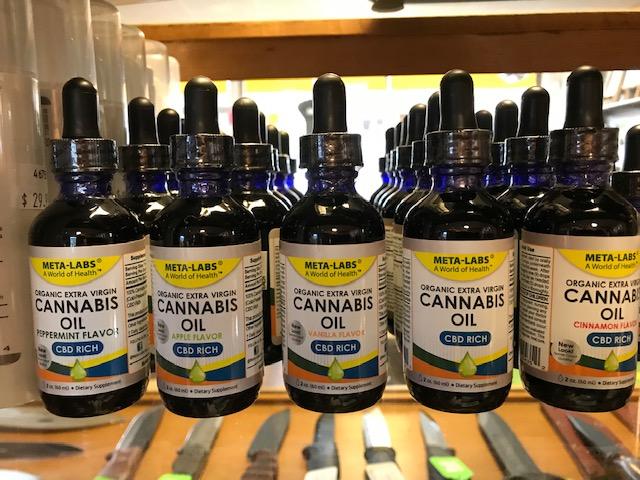CBD is everywhere. CBD-flavored lollipops, hemp-infused lip balm and now cannabidiol (CBD) at the pharmacist. For those who can no longer tell the drug from the legal stuff, we list the facts. “CBD is so hyped that you find it everywhere. But it’s not the panacea it’s made out to be.”
What exactly can we buy at the pharmacy?
These are cannabidiol (CBD)-based medications in powder form, which pharmacists process into oils, ointments or capsules on doctor’s orders. CBD is one of at least a hundred active substances – cannabinoids – of the CBD plant. The most well-known is delta-9-tetrahydrocannabinol or THC. It’s that substance that gets you high and is potentially dangerous because it can be addictive and promote psychosis.
So can’t we get high from the CBD oil at the pharmacy?
No, because the medicines at the pharmacy may contain up to 0.05 percent of the psychoactive substance THC. That is so little that it has no effect whatsoever. By way of comparison: in the coffeeshops of our northern neighbors the hemp contains up to 20 percent THC. So it is purely about the beneficial effects of CBD.
CBD comes from the same plant as the drug, right?
Yes, but there are many varieties of the CBD plant. Throughout the centuries man has crossed species with each other precisely to enhance certain effects. So the key is to grow plants with high CBD content and low THC.
The drug law is clear: CBD is only illegal when it contains more than 0.2 percent THC. This exception was made so that Belgian farmers can grow hemp for the industry, for example for textiles or insulation. Moreover, that legal hemp may not be marketed as medicine or food.
I can just buy CBD in one of the new shops, right?
Correct. At least 34 CBD shops are taking advantage of that loophole in the legislation. On the shelves are oils and also flower tops that you can smoke. These are then sold as massage oils or potpourri, but are also just swallowed or smoked. In principle, the THC content is less than 0.2 percent, but analyses requested by the public prosecutors in our country have already shown that this concentration can be higher. “In the shops you can never be sure what you’re getting,” says Dr. Arno Hazekamp of the Dutch Scientific Information Center on CBD. “There may be too much THC in it, too little CBD or even contamination, such as heavy metals or pesticides.” Through the pharmacy, you can be sure of the quality, and the mandatory prescription ensures proper guidance from the doctor.

What about all those other CBD products?
If you take a quick look online, you’ll also find all sorts of CBD-based cosmetics, hemp oil or CBD-flavored lollipops. “All products that have jumped on the hype, but whose effects are very questionable,” says Hazekamp. “If you want an effect, you need large concentrations of CBD. Some lip balm really won’t get you there.”
So what does CBD do to our bodies?
“CBD is the brother of THC, but it acts on a completely different protein,” says toxicologist Jan Tytgat. “That protein, unlike THC, is not in the brain, so it doesn’t become addictive either. The protein that CBD acts on is involved in physiological processes such as pain and immunity. There is therefore evidence that it can improve certain syndromes, although the evidence is not universal.” Check out more information on CBD from Kathy Ireland by clicking here.
So which diseases can CBD help against?
For certain forms of epilepsy in children, CBD can curb the number of seizures. For multiple sclerosis (MS), it has also already been shown to lift muscle spasms. “People with chronic pain and migraines would also be helped,” says Tytgat. “But it’s not the panacea that many try to make of it. Sometimes it is even said that it can help against cancer. Not so.”
Will more forms of medicinal CBD soon become legal?
That chance is real because earlier this year the Chamber approved the creation of a national CBD agency to oversee the future cultivation of medicinal CBD for research and possible export. “This law does not say anything about a possible delivery to the patient,” says the spokesperson of the FAGG. That CBD could contain higher concentrations of THC. Despite the potentially harmful effects of THC, some studies suggest that it is the combination with CBD that has the most medicinal effect.
In fact, there is already one CBD-based medicine that contains both substances: Sativex, a spray for MS patients.
And what about CBD for recreational use?
Coincidence or not, on Thursday it became known that Luxembourg will fully legalize CBD, also for recreational use. In our country, too, there are various experts who argue for legalization, but within the political parties – led by the N-VA – there is too little enthusiasm for such a change.
